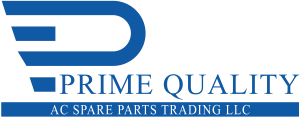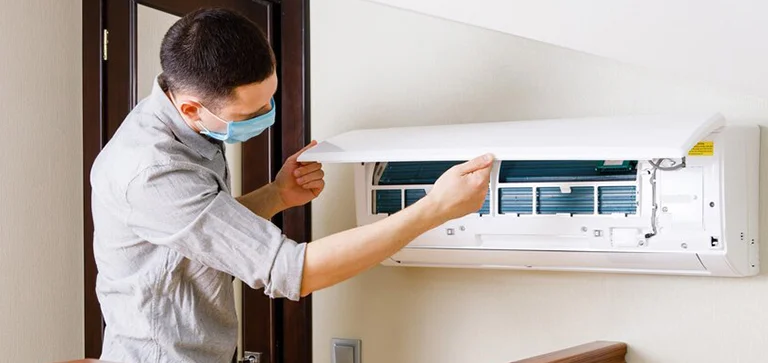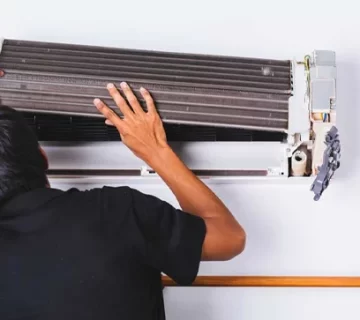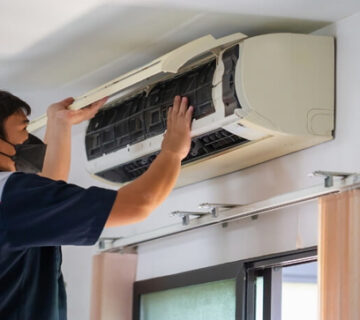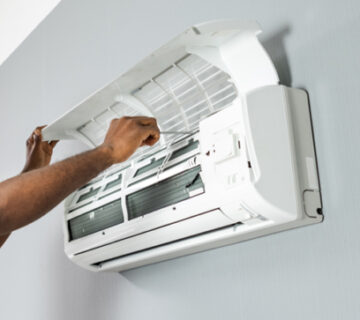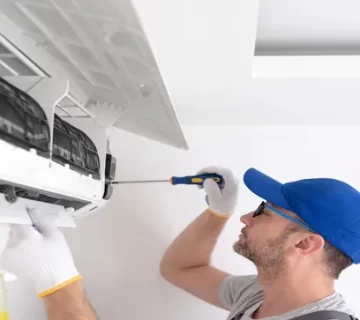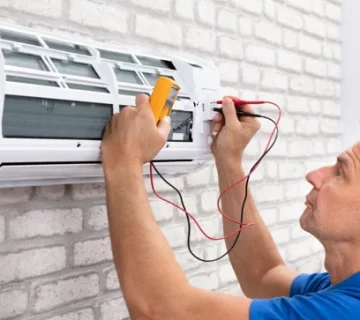The role of AC maintenance in reducing allergens in your home is essential for creating a healthy and comfortable living environment. Air conditioning systems do more than just cool your home; they also play a significant role in filtering out harmful particles like dust, pollen, and pet dander that can trigger allergies. Regular AC maintenance ensures that your system is working efficiently to reduce allergens in home, keeping the air you breathe clean and safe.
One of the key aspects of AC maintenance reduces allergens is the routine cleaning or replacement of the AC air filter. Over time, these filters can become clogged with dust and debris, reducing the system’s ability to filter the air effectively. Additionally, maintaining AC spare parts, such as the coils and fans, ensures that the system operates smoothly and prevents the buildup of mold and bacteria that can contribute to poor indoor air quality.
By staying proactive with AC maintenance, including timely inspections and replacing worn-out AC spare parts, you can significantly reduce the presence of allergens in your home. This not only enhances your family’s comfort but also protects their health by minimizing exposure to common allergens. Regular maintenance is a vital step in ensuring that your air conditioning system continues to function at its best.
Here are some roles of AC maintenance in reducing allergens in your home.
1. The Function of AC Maintenance in Reducing Allergens:
The role of AC maintenance in reducing allergens in your home is crucial. Regular maintenance ensures that the air conditioning system works efficiently, filtering out dust, pollen, and other allergens. By cleaning or replacing air filters, checking for mold growth, and ensuring proper ventilation, AC maintenance helps keep the air inside your home clean and allergen-free. This reduces the risk of allergies and respiratory problems for your family. Regular inspections also prevent the buildup of contaminants, making your home a healthier environment overall. Prioritizing the role of AC maintenance is essential for a comfortable and allergy-free living space.
Clean Filters:
Keeping your AC filters clean and changing them on a regular basis is essential since they keep dust, allergies, and other particles from spreading throughout your house.
Duct Cleaning:
By periodically cleaning your air conditioning system, you can keep your living area free of collected dust, mold spores, and other allergens that may have entered through the system.
Coil Cleaning:
Mold and mildew can grow on the dirty coils in your air condition system, giving them the ability to spread throughout your house. Cleaning coils on a regular basis will help reduce this problem.
Preventative Maintenance:
Regular AC inspections and tune-ups can help you spot problems that could lead to the accumulation of allergens early on, enabling you to take care of these issues before they get worse.
2. Solutions for Indoor Air Quality in a Healthier Home
To reduce allergens in your home, it’s essential to combine indoor air quality solutions with regular AC maintenance. Installing high-efficiency air filters, using air purifiers, and ensuring proper ventilation can significantly enhance indoor air quality. Regular AC maintenance in reducing allergens includes cleaning or replacing filters and checking for any worn-out AC spare parts that may compromise air quality. By addressing these aspects, you can effectively reduce the presence of dust, pollen, and other allergens, creating a healthier living environment for you and your family. A well-maintained AC system plays a vital role in keeping indoor air clean and allergen-free.
Air Purifiers:
By collecting and holding onto airborne particles such as pollen, mold spores, and pet dander, air purifiers can dramatically lower allergy concentrations in your home.
Dehumidifiers:
Elevated relative humidity inside can encourage the growth of mold and mildew, which worsens the quality of the air and makes allergens more prevalent. Dehumidifiers can prevent the growth of mold and help maintain ideal humidity levels.
UV Lamps:
To further enhance indoor air quality, use germicidal ultraviolet (UV) lights in your HVAC system to get rid of mold and bacteria accumulation on coils and in ducts.
Airflow:
By bringing in fresh, clean air and removing stale, contaminated air from your home, proper ventilation helps lower the concentrations of allergens in your living area.
3. Indications That You Might Need Expert AC Repair and Indoor Air Quality Solutions:
If you’re experiencing ongoing allergy symptoms at home, it may be a sign that your AC system needs professional attention. Several indicators suggest that expert AC repair and indoor air quality solutions are necessary. For instance, if your air conditioning has deteriorated, leading to reduced airflow or uneven cooling, it could be due to clogged AC air filter or malfunctioning components. Unusual odors or excessive dust buildup might also indicate that the system is not filtering allergens effectively.
Issues with AC spare parts, such as a faulty compressor or worn-out fan blades, can further compromise the air quality in your home. Professionals can use specialized air conditioner tools to diagnose and fix these problems, ensuring that your system operates efficiently. Addressing these issues promptly with expert help will not only improve your air conditioning but also reduce allergens, creating a healthier living environment for you and your family.
The signs of a persistent allergy: If you or anybody in your family has persistent allergy problems, it may be because of an accumulation of allergens in the air in your house, necessitating expert AC maintenance and air quality solutions.
Evident mildew or mold:
Expert intervention may be necessary if mold and mildew are present in your house since they can considerably contribute to low indoor air quality and elevated allergy concentrations.
Elevated Humidity:
An overly humid environment in your house might encourage the growth of mold and allergens. It might be time to look into indoor air quality options like dehumidifiers if you are having problems with excessive indoor humidity.
Buildup of Dust:
If you observe an excessive amount of dust accumulation in your house, it can be a sign of problems with your air conditioning system, including unclean filters or ducts that need to be professionally maintained.
Conclusion
The role of AC maintenance in reducing allergens in your home cannot be overstated. A well-maintained air conditioning system is essential for ensuring that the air you and your family breathe is clean and free from harmful allergens. Regular AC maintenance, such as cleaning or replacing the AC air filter, is crucial in filtering out dust, pollen, and other particles that can trigger allergies and respiratory issues.
Additionally, paying attention to the condition of AC spare parts, such as coils, fans, and ducts, plays a significant role in maintaining optimal air quality. Worn or malfunctioning parts can lead to inefficient operation and the buildup of mold, bacteria, and other allergens within the system. By addressing these issues through regular maintenance, you ensure that your air conditioning system continues to perform at its best, helping to reduce allergens in your home effectively.
Ultimately, consistent AC maintenance to reduce allergens is a proactive approach to creating a healthier living environment. It not only improves the efficiency and lifespan of your AC system but also contributes to the overall well-being of your household. Investing in regular maintenance and timely replacement of AC spare parts is a small step with significant benefits, ensuring that your home remains a safe and comfortable space free from allergens.
